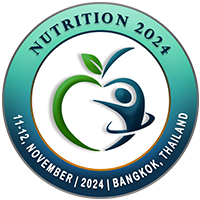
Rozina Akter
Bangabandhu Sheikh Mujib Medical University, BangladeshTitle: Imbalanced diet and dental caries development: A case control study
Abstract
Background: To present dietary recommendations for dental caries prevention, a retrospective case control study was conducted (June, 2021- May, 2022) in Conservative Dentistry and Endodntics Department, Bangabandhu Sheikh Mujib Medical University. The study aim was to assess the association between imbalanced diet and dental caries development by comparing the imbalanced diet score between dental caries comprised (case) and dental caries free (control) group.
Methods: Total of 100 (50 cases and 50 controls) subjects of age of 20-50 years were included by purposive sampling technique. Both groups were comprised of good oral hygiene status. International Caries Detection & Assessment System was applied to evaluate dental caries and for assessment of oral hygiene status of the subject, Oral Hygiene Index was applied. Subjects were categorized into balanced and imbalanced diet habituated groups according to Diet Evaluation Score based on dietary guidelines developed by DGHS, BIRDEM, FAO and USAID in 2013. A face-to-face in-depth interview was conducted using a pretested semi-structured check list/questionnaire which contains 17 indicators of diet and physical activities. Subject’s response was categorized into two ‘yes’ for daily/regular (more than 3 days/week) eating habit and ‘no’ for sometimes/occasionally/never eating habit. Diet score (balanced and imbalanced) is categorized into three; good (15-17 yes response), moderate (11-14 yes response) and poor (≤10 yes response) and poor diet category was considered as imbalanced diet category.
Results: About 82% of cases belonged to imbalanced diet category in where only 8% of controls were habituated to take imbalanced diet and the statistical difference between two groups was significant (P 0.001). The odds ratio analysis showed that cases were about 10 times more likely or habituated to eat imbalanced diet compared to controls. The study also revealed that regular fruit eating habit was more belonged to controls (64%) compared to cases (8%), habit of chewing food with time was more belonged to controls (92%) compared to cases (44%) and drinking of water >6 glasses daily were more belonged to controls (96%) compared to cases (52%). Among 17 indicators, these three indicators mentioned above were significantly differed between two study groups respectively (P 0.001). Moreover, about 81% of dental caries free subjects (controls) were habituated to eat sour type of fruits in where no case (dental caries comprised subject) revealed eating habit of sour type of fruit regularly (P 0.001).
Conclusion: The imbalanced diet is considered as a definite risk factor for dental caries development. In addition, the habits of eating fruits (mainly sour group) regularly, chewing of food with time as well as drinking of water more than 6 glasses daily can be considered as the most three significant preventive factors for dental caries development.
Biography
TBA

